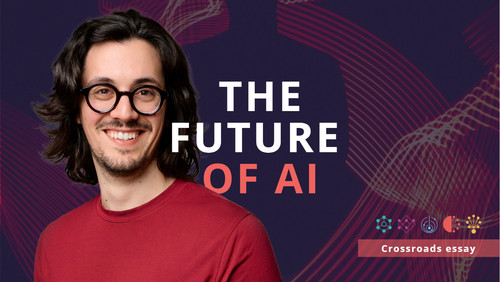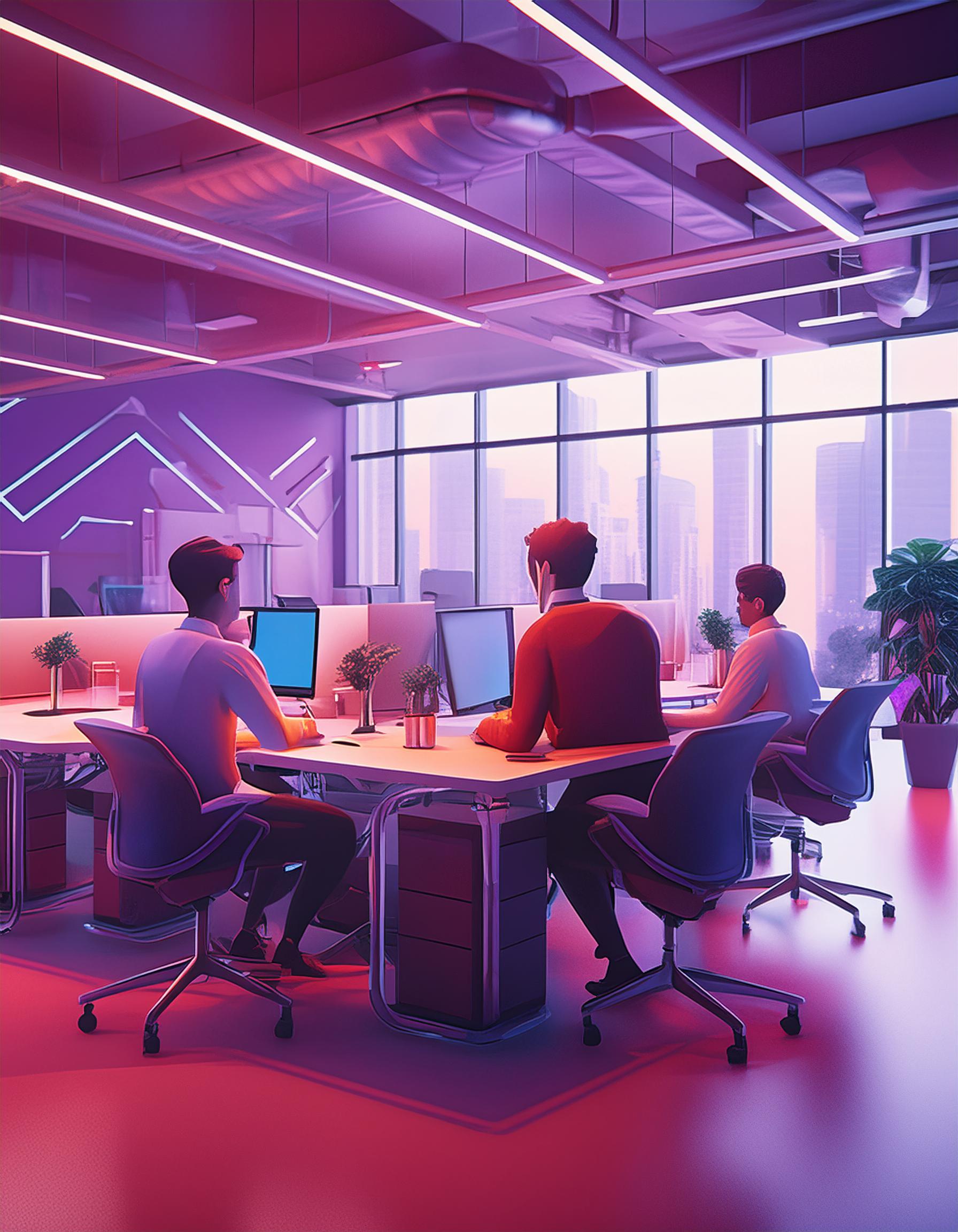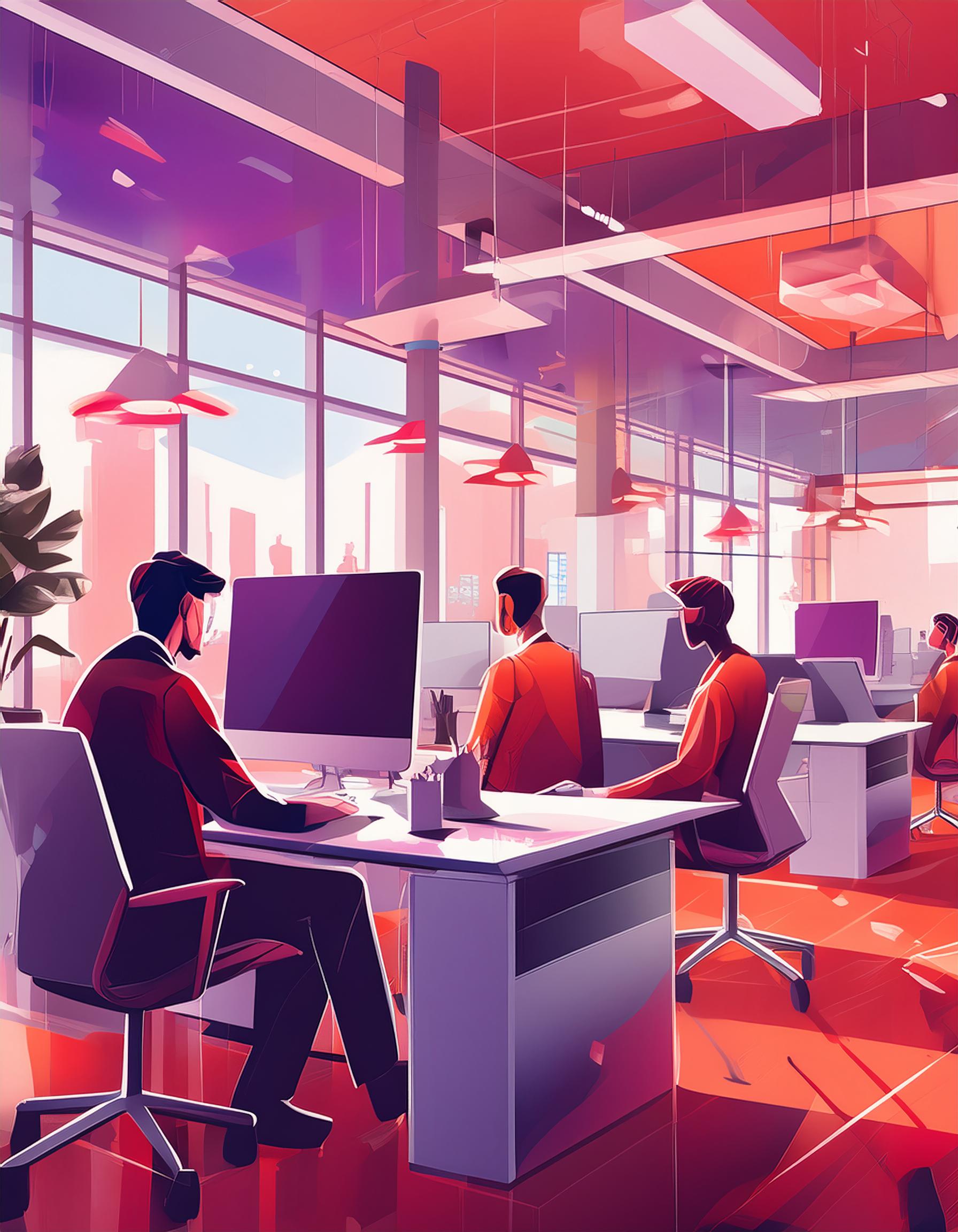
19. June 2024
AI Outlook for the next 10 years with Gianluca Mauro, founder of the AI Academy
We recently published our Crossroads essay “The Future of AI”. What we know about AI and what impact it will have on the German media and communications market in the next 10 years. With our interview series, we would like to give you exciting insights from our expert interviews, starting with Gianluca Mauro, founder of the AI Academy.
Gianluca Mauro discovered his passion for AI during his studies in Silicon Valley. In 2018, he founded the AI Academy, a company that helps people and organisations understand and apply AI through workshops, consulting, online courses and his book “Zero to AI”. In addition to teaching AI, he is active in the field of AI ethics and led an investigation for The Guardian and the Pulitzer Center on how AI algorithms objectify women's bodies.

Where do you think we currently stand in the field of AI and where will we be in 10 years' time?
I've been working in the field of artificial intelligence for almost 10 years, which means I've seen many different phases. But there is one thing that I see over and over again: there is a delay between when a technology is ready to be used – i.e. works pretty well – and when companies become aware of it and start using it. For example, if I think about computer vision, which is another form of AI, it has been working quite well since 2015, but companies are still not using it in factories, for example.
If I look specifically at the case of generative AI, I think that many things have not yet been sufficiently researched. ChatGPT, for example, is not perfect, but it is definitely already useful. In the next three to five years, I expect to see a lot more experimentation from a business perspective. I want to see more use cases and tighter integration with the tools that organisations use on a daily basis.

What do you think will encourage companies to use AI and create more use cases?
I think the main barriers are a lack of knowledge and a lack of willingness to experiment. I see organisations still wondering if there are use cases for them, overlooking the fact that Generative AI is a general purpose technology: it's up to them to find the right use cases for their business and industry. The solution is to invest in education and create a safe space for teams to experiment and research.
There are also organisations that are hesitant due to the uncertainty that comes with this new technology. Take the EU AI Act for example: as a company, how do you feel safe investing in a technology that you don't yet know how it will be regulated? But at the same time, will you be able to ignore it when everyone is asking you how to take action? The tension between these two points is definitely there, but there are still many question marks and you have to be brave to take risks and make bets. There are several factors that need to come together for a new technology to be successfully introduced, and these factors take time.

What will happen to the European market if all the major AI companies are based outside Europe?
We have the idea that only Europe regulates: The USA innovates and Europe regulates. This is what happened with the General Data Protection Regulation (GDPR), which is the strongest data protection regulation in the world. But we saw what happened when the GDPR was introduced as the first of its kind: Most companies implemented the GDPR globally. This standard has spread worldwide. I don't know if the EU AI Act will remain in its current form or expand to everyone.
But Europeans are not the only ones regulating. And the reason is that we know what happens when you under-regulate technology – for example, in the case of social media. The US is still fighting about it because they haven't done anything about it. So we know it's a big problem. That's point one. Point two: AI is a very big deal. The potential scale of AI is in the trillions of dollars. Given these two points, there is a lot of fear. AI is a massive strategic advantage on a global scale, not just on a country or company level.

What do you consider to be a 100% developed AI?
For me, it's a completely new way of interacting with computers. I think we're doing something wrong with the development of technology.
We've integrated a lot of technology into our lives, like Zoom calls, smartphones, the internet and all these things, but it feels like there's a disconnect between the amount of power we have in our lives and the amount of productivity and quality of life we have. I hope for a world where AI actually makes us more productive by removing things we don't want to do and we can focus our energy on more important, fulfilling and higher value tasks. It feels a little uncomfortable to say that because that's been the promise of technology for a long time. I was told as a child that technology would improve our lives. So I hope that the way we work will finally change noticeably. I really hope so. Because it can lead to more human relationships. Because sometimes technology – like a boring Excel spreadsheet – can be the most dehumanising experience you can have. If I can automate all that, maybe I can just talk to people more.
Want to know more? Exchange ideas with us? Feel free to write to us: Strategie(at)stroeer.de
Media content in this blog post was created with the help of AI.


